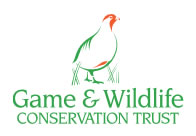The police investigation into, what is suspected to be, the largest mass poisoning of birds in the UK goes on. Across just two square miles of the Black Isle, north of Inverness, the bodies of 12 red kites and four buzzards have already been recovered – there may well be more.
RSPB Staff and volunteers at the nearby Tollie Road reserve, near Conon Bridge, are involved in helping Police Scotland with their investigations. The RSPB reserve has a red kite feeding station and the ‘Tollie Red Kites’ have become a popular attraction. Brian Etheridge, the RSPB red kite officer in the Black Isle who had ringed and tagged the birds, summed this up as “the worst two weeks of my life”.
This sense of loss and outrage extends across all those that live in and love our countryside. Whilst the Game & Wildlife Conservation Trust (GWCT) has no specialist local knowledge about the land management or raptor conservation around the Muir of Ord it remains fully committed to the recovery of raptors in the UK. Along with the RSPB our conservation research staff began the first Joint Raptor Study in 1992 and that joint effort continues.Today we are still working together at the ground breaking Langholm Moor Demonstration Project. This specialist conservation knowledge has enabled the GWCT to; train Police Scotland staff, sit on no less than three committees for the Partnership for Action Against Wildlife (PAW) crime in Scotland and give expert advice in court. Having said that we do not, as such, investigate wildlife crime. That is something for the police to solve.
We remain outraged by this recent loss of raptors from our skies and urge anyone with information helpful to Police Scotland to contact them immediately. For those that wish to boost the RSPB reward fund for information about these poisonings please do so at JustGiving. Here’s to hoping Police Scotland get to the bottom of this fast and we see the return of healthy raptor population numbers.
 GWCT News & Advisory
GWCT News & Advisory

No comments:
Post a Comment